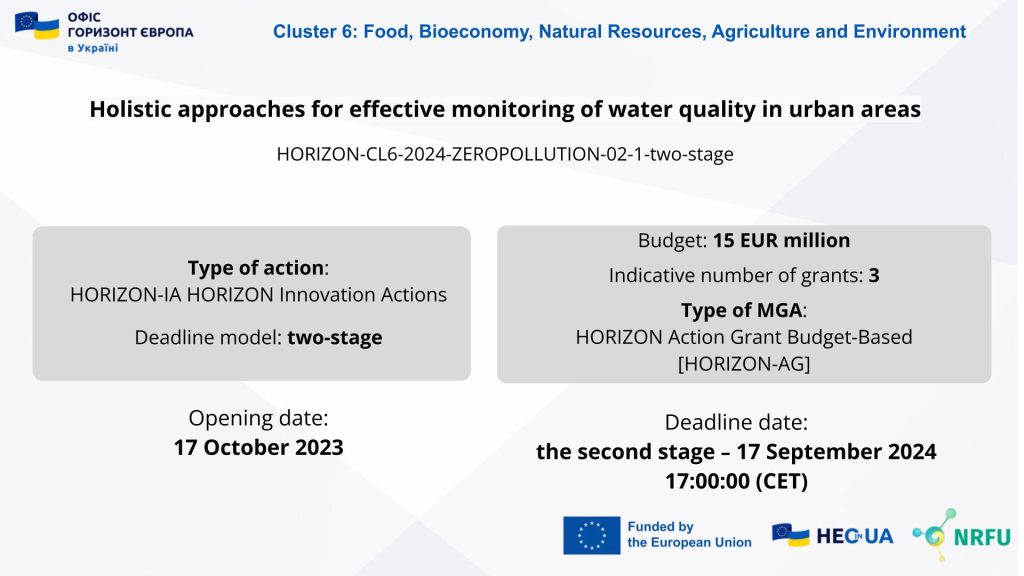Holistic approaches for effective monitoring of water quality in urban areas (HORIZON-CL6-2024-ZEROPOLLUTION-02-1-two-stage)
Horizon Europe Office in Ukraine continues to inform that the second stage of calls in Cluster 6: Food, Bioeconomy, Natural Resources, Agriculture and Environment within Pillar II Global Challenges and European Industrial Competitiveness are available. Deadline for applications in the 2nd stage – September 17, 2024.
Holistic approaches for effective monitoring of water quality in urban areas (HORIZON-CL6-2024-ZEROPOLLUTION-02-1-two-stage).
Expected Outcome:
In line with the European Green Deal’s zero pollution ambition, successful proposals will contribute to protecting water quality by managing urban water pollution, and consequently also protecting biodiversity and the quality of aquatic ecosystems, as addressed by several impacts under the Destination ‘Clean environment and zero pollution’, in particular “Move towards achieving clean, unpolluted surface water and groundwater bodies in the EU by advancing the understanding of diffuse and point sources of water pollution in a global and climate change context, enabling novel solutions to avoid degradation and restore water bodies, aquatic ecosystems and soil functionality, and further enhancing water quality and its management for safe human and ecological use, while fostering the EU’s and Associated Countries’ position and role in the global water scene.”
Projects results are expected to contribute to all of the following expected outcomes:
- Enhance urban water quality with a view of providing better guidance for policy making and prioritisation by developing integrated urban water quality monitoring management plans;
- Sound, safer and risk-based urban water quality management plans supported by enhanced holistic monitoring, advanced novel methods and digital solutions, modelling and evidence-based scenarios;
- Increase uptake of digital tools in the water sector to support water management decisions for all stakeholders.
